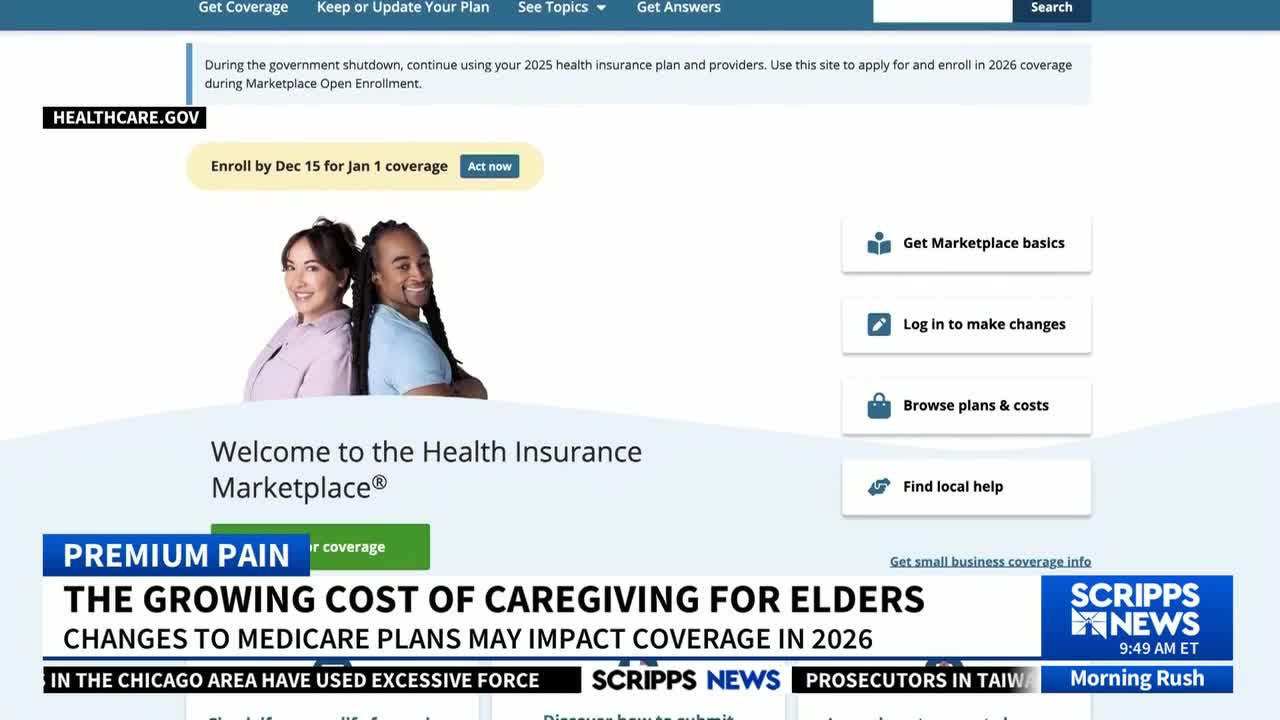Millions of middle-aged Americans find themselves in the "sandwich generation," caring for aging parents while managing their own insurance needs and potentially helping their children.
Former Centers for Medicare and Medicaid Services Administrator Chiquita Brooks-LaSure offers crucial guidance for families navigating healthcare coverage during open enrollment season.
Medicaid serves as a crucial resource for aging Americans who need home and community-based services. Many states offer programs to support families, though Brooks-LaSure warned that some benefits may face cuts due to budget constraints.
PREMIUM PAIN | 'My mom always comes first': Caregivers strain under Medicare changes
Brooks-LaSure emphasizes the importance of understanding Medicare's two main options: original Medicare, which covers certain services and benefits, and Medicare Advantage, which can offer additional benefits but may be more restrictive.
"It is crucial during this period of time that people make sure that they enroll in Part D coverage so they can get their benefit, their drugs covered, and really find out about caregiver services," she said. "Really researching what options are available to you is incredibly important."
She encourages families to contact state representatives and members of Congress about the importance of these benefits.
Ten states still haven't expanded Medicaid, leaving some of the lowest-income residents without coverage, said Brooks-LaSure. She recommends visiting healthcare.gov or state websites to determine eligibility.
"Most people who are over the age of 65 are eligible for Medicare and Medicaid, and so it tends to be people who are younger who are not covered and missed in those eligibility gaps," she said.
PREMIUM PAIN | Rising health costs risk deadly outcomes for uninsured patients
The most critical factor when transitioning from employer-sponsored insurance to marketplace coverage or Medicare is timing, said Brooks-LaSure.
"One of the biggest things is knowing when your coverage is going to end, and making sure you get coverage as soon as you can, so that you're not facing a gap," Brooks-LaSure said.
For Medicare enrollment, individuals should contact the Social Security Administration. Employers should assist with the transition process, as retiree coverage often builds on specific Medicare coverage types like Medicare Advantage or Medigap policies.
When transitioning to marketplace coverage through healthcare.gov, Brooks-LaSure advises looking beyond premium costs.
"Don't just look at the premiums, because you really want to know what it's going to cost for you when you actually use your care," she said.
Both employer-sponsored and marketplace coverage receive tax benefits and federal subsidies based on income levels, making it important to consider both premium costs and out-of-pocket expenses.
This story was reported on-air by a journalist and has been converted to this platform with the assistance of AI. Our editorial team verifies all reporting on all platforms for fairness and accuracy.




